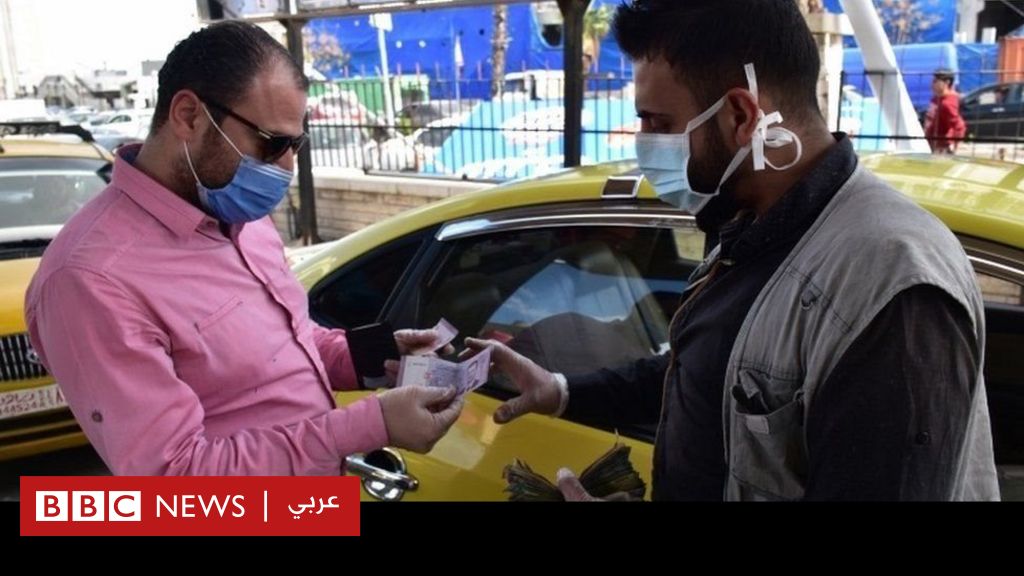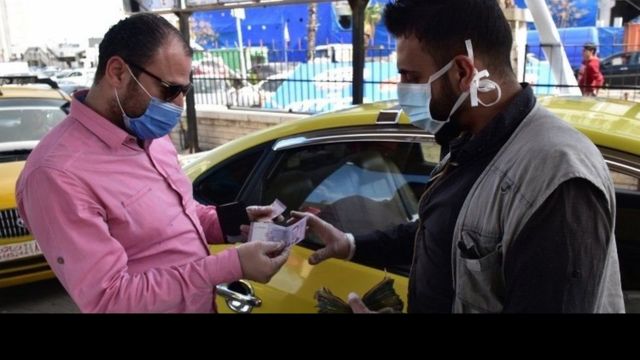
[ad_1]
- Media monitoring section
- BBC

Published photo, EPA
Human rights organizations warn spread of virus in Syria could have dire consequences given circumstances available there
Arab newspapers were interested in their print and electronic versions of the phone call between the Crown Prince of Abu Dhabi, Sheikh Muhammad bin Zayed, and Syrian President Bashar al-Assad.
Bin Zayed said in a previous tweet that he discussed with Assad “the repercussions of the spread of the Coronavirus” and assured him “of the UAE’s support and assistance to the brotherly Syrian people in these exceptional circumstances.”
Bin Zayed concluded her tweet by saying, “Human solidarity in times of adversity transcends all considerations, and the Syrian Arab sister will not be left alone in these critical circumstances.”
A number of writers believed bin Zayed’s appeal was an advanced step in Syrian Arab reconciliation, while others believed Assad “will not hesitate to reap the fruits of the epidemic.”
Stir “stagnant water”
Adly Sadiq said in the London-based Al-Arab newspaper that “perhaps decency, and some side considerations one might assume, are what made the UAE’s explanation of Sheikh Mohammed bin Zayed’s contact with President Bashar al-Assad was limited to the humanitarian issue in light of the Corona attack.
He continues: “There are many indications and reasons that make politics and strategic vision strongly present – and logically – without needing to be surprised … The point is that regular Syrian forces control most of the land. Syrian. , the Syrians who live in their country, and their brothers who left it and hope to return. They are waiting for a settlement that will ensure them a constitutional political life, without the condition of overthrowing Assad. “
And he adds: “What is the remaining reason for boycotting the regime in Syria? Does a reasonable person think that continuing the boycott would overthrow this regime? Logic demands to say: it is wrong that the position towards Syria depends on the position on Iran The Syrian regime is different, in the end it is a secular one, and it is hoped that it will be a secular, mature and disciplined person with a modern constitution. At this level, the boycott will not be as beneficial as communication.
In the same context, Abdullah Al-Ayoubi declared in the Bahraini newspaper, “Akhbar Al-Khaleej”, that “the telephone call made by the crown prince of Abu Dhabi with the Syrian president represents a very advanced stage which would open the way to an objective and real treatment of the political repercussions left by the Syrian crisis, which clearly reflected on Arab-Arab relations, but which rather tempted the regional powers to increase their interference in the affairs of many Arab countries. “
Published photo, Getty Images
Arab writers believe Zayed’s initiative to help Syria fight coronavirus has political goals
Al-Ayoubi added: “This good initiative which came from His Highness the Crown Prince of Abu Dhabi will undoubtedly help to correct the distortions in the relations of some Arab countries with Syria, and it would also move the stagnant waters in the lake of these relations. and open the doors of the Arab League so that sister Syria is in its place. “Al-Sahih alongside the rest of his Arab brothers.”
He continues: “ The existing situations force everyone to reconsider their positions and to read these situations carefully and with national and national responsibility, and whatever the discord between this or that Arab country, there is no other choice than to work for the restoration of Arab-Arab relations. and bring them back to their normal state. The Arabs, no matter how far this or that is, they stay the closest to each other. “
The “gift” of the deadly virus
Omar Kaddour declared in the Lebanese newspaper “Al-Modon”: “Bashar al-Assad received a call from Mohammed ben Zayed; it is the first gift of the deadly virus. Emirati normalization intentions with Assad surfaced two years ago, and then he was arrested at least twice by the US administration, which also held back the intentions. Another Arab. “
Kaddour continues: “The coverage is humanitarian and the content is political, so is the Emirati message and anyone who humbles themselves behind it, or who will join it… The horrors of life that have emerged with the measures to cope to the epidemic illustrate the Syrians need two types of urgent aid, food and medical. The intervention to save the Syrians cannot be passed on. Except by Assad, and the latter will not hesitate to blackmail any serious international party for the sake of normalization with him. “
The author concludes his article by saying: “Mohammed bin Zayed’s contact with Bashar al-Assad may not be more likely than a single initiative and the opportunity presented itself with Corona, but Assad did will not hesitate to reap the fruits of the epidemic if it finds a will on a larger scale than the Emirati initiative. “
In the same vein, Ernst Khoury declares in the London newspaper Al-Arabi Al-Jadeed that “Mohammed bin Zayed, and the rest of the pillars of the Emirati authority in general, never wanted to suppress the Syrian regime or to reform it. , even since the outbreak of the revolution.
He continues: “The journey of the Emiratis who declared themselves hostile to the Syrian regime was so short that, despite its short duration, it was longer than logic supposes. Logic places both the rulers of Abu Dhabi and Damascus in the category of their dear friends; they are one in their vision of freedom as sabotage, and the citizens as slaves. Or the dead, democracy is like the rule of the crowd, and this “good Islam” limits its work to the service of the sultan. “
He adds: “The Syrian regime has been and still is a source of comfort for a country like the Emirates, although it has been forced to temporarily face the American will. The American pressure having disappeared, it remains only to wait for the end of the current wave of Corona, for Bashar al-Assad to visit Abu Dhabi, and Muhammad ben Zayed return to him. The Medal of Merit for Outstanding Class that Hafez Al-Assad gave to Zayed Al Nahyan in Damascus one day in 1973.
Source link